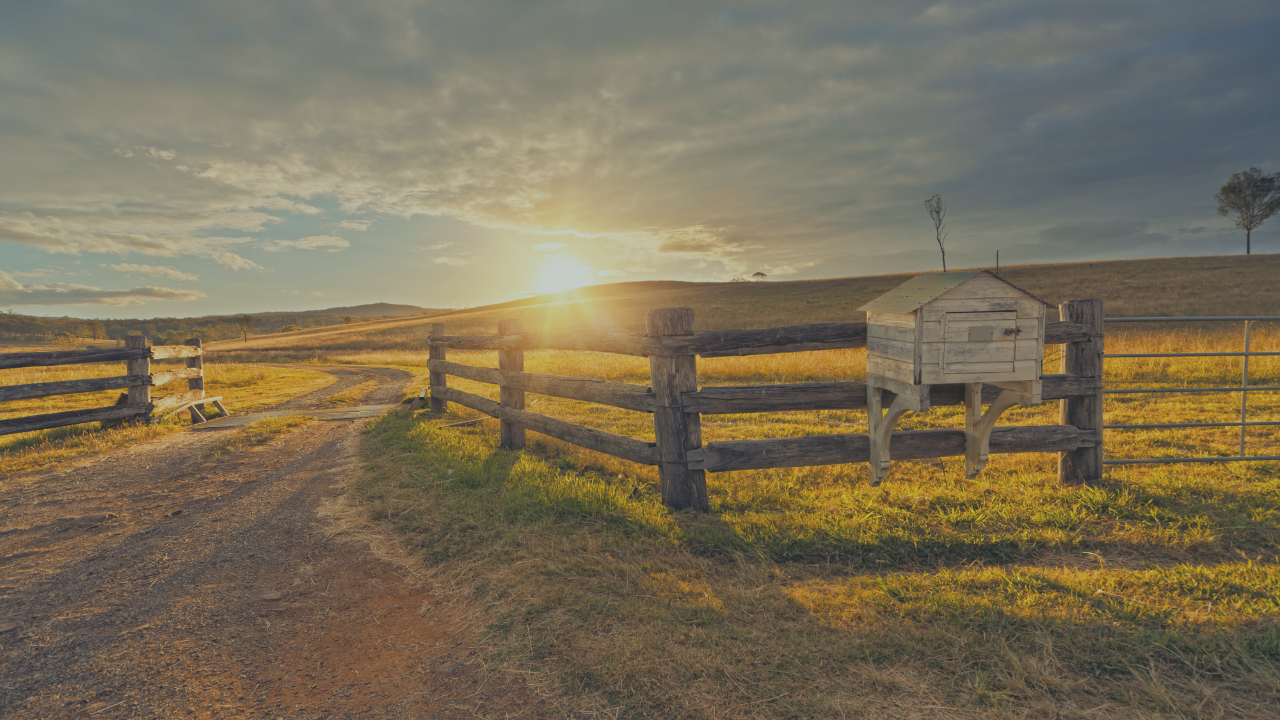
What to Know Before Buying Rural Property
Farms for Sale in Texas:
Farms for Sale in Texas: What to Know Before Buying Rural Property
Ready to live the country life? Explore available farms for sale in Texas and get expert advice on water rights, financing, and rural land use. Whether you’re eyeing a hobby farm, expanding your agricultural footprint, or relocating to wide-open spaces, this guide will help you navigate the unique challenges and opportunities of buying rural Texas land.
Looking for an expert to walk you through the process? I’m the woman for the job. Inquire here.
Why Texas? Embracing Country Living in the Lone Star State
With its sweeping prairies, abundant sunshine, and rich ranching heritage, Texas is a dream state for country living.
-
Land diversity: From fertile East Texas pineywoods to the semi-arid High Plains, soil types vary—ideal for cattle, crops, or mixed-use farms.
-
Strong agricultural economy: Texas leads the nation in cattle production and ranks high in acreage and agricultural output.
-
Lifestyle benefits: Lower cost of living, strong rural communities, and a slower pace of life attract people from tight urban centers.
But with land comes responsibility. Before making an offer on a multi-acre ranch, you’ll want to investigate critical land-use factors: water rights, financing options, zoning, soil quality, and more. Here’s what every prospective farm-buying Texan should know.
Water Rights: The Lifeblood of Your Texas Farm
A. Surface Water & Groundwater Are Legally Different
In Texas, owning land doesn't automatically grant water access. Water rights include:
-
Riparian rights: Granted to owners whose multi-acre property abuts a natural watercourse—but only for reasonable, limited use.
-
Prior-appropriation rights: Based on “first in time, first in right” for permit holders—crucial for properties relying on rivers, creeks, or reservoirs (thlg.law, daughtreylaw.com).
Surface-water rights must be permits or certificates from the TCEQ. Groundwater in most of Texas is governed by the “rule of capture,” with exceptions in regulated aquifers—like the Edwards, which requires permitting and reporting.
Why Water Rights Matter
Securing reliable water access is essential. In drought-prone Texas, insufficient or junior water rights can devalue property—even up to 10–20% . You'll want to know:
-
Type & extent – Is it domestic, livestock, irrigation, or commercial use?
-
Amount & flow – How many acre-feet per year and at what rate?
-
Priority date – Older permits are more reliable during droughts (twdb.texas.gov).
-
Legal restrictions – Some permits have timing restrictions tied to drought or gauge readings (twdb.texas.gov).
-
Source aquifer or river basin – Check for designated groundwater districts or oversight (e.g., Edwards Aquifer) (en.wikipedia.org).
Before buying, ensure water is legally tied to the land or transferable with the sale. Consult TCEQ records—and consider making water-rights title review part of your due diligence (twdb.texas.gov).
Financing Your Texas Farm
Purchasing rural land is different than purchasing a home. In many cases, expect stricter lending requirements and a longer process start to finish when purchasing land for sale in Texas.
Land Loan vs. Mortgage
-
Raw land loans (undeveloped terrain): high down payments (20–30%) and elevated rates.
-
Improved land loans (with utilities/access): better terms, but still more stringent than mortgages (investopedia.com).
-
Owner financing: seller acts as lender—can be more flexible but requires careful legal review (scprgv.com).
-
USDA loans: ideal for rural buyers; competitive rates and favorable terms, including minimal down payment (investopedia.com).
What Lenders Look For
-
Clear title and title insurance.
-
Land surveys, boundary descriptions, and zoning.
-
Utilities, water access, road access (including country roads), and environmental conditions.
-
A detailed plan: farming operation, conservation strategy, hunting land, or homestead vision.
Government & Special Programs
-
USDA Farm Ownership Loans support farm acquisitions with low rates (scprgv.com).
-
Conservation Programs: NRCS and AMA may support irrigation, erosion control, or habitat restoration (en.wikipedia.org).
-
Conservation easements may reduce taxes by removing development rights from the property (en.wikipedia.org).
Due Diligence & Rural Land Use: What to Inspect
This “10-step checklist” is vital for evaluating rural acreage and ranches for sale (findfarmcredit.com). Key considerations:
-
Soil & topography – Determine suitability for crops or pastures.
-
Zoning/land use – Determine rules for building, livestock, or crop use.
-
Access rights – Ensure public roads or easements—you don’t want to be landlocked.
-
Utilities & infrastructure – Power, water, septic, fencing, and drainage.
-
Environmental restrictions – FEMA flood plains, wetlands, endangered species habitat.
-
Water systems – Types of wells, storage, irrigation systems, water rights.
-
Legal review – Work with an attorney familiar with the TREC farm & ranch contract (investopedia.com, daughtreylaw.com).
-
Title & survey – Confirm boundaries and catch easements, rights-of-way, or encumbrances.
-
Farm/ranch operations – Asset inventory, livestock history, agricultural performance.
-
Insurance & taxes – Liability, crop insurance, ag exemptions (10+ acres minimum for ag tax benefits in many counties) (thlg.law).
Buildable Homestead or Working Farm?
Define your vision before you buy:
-
Hobby farm / ranchette: 10–50 acres, suitable for personal use, small livestock, gardens.
-
Full-scale operation: Larger acreage requiring commercial farming, equipment, full-time staffing.
-
Mixed or transitional property: Often requiring re-zoning, fencing, water development, grazing plans, or soil improvements.
Your funding needs, permits, and available programs will differ depending on your intended land use. Additionally, locality plays a major role in the intended use of your farm. From Bastrop to Burnet County,
6. Putting It All Together: Tips from Texas Experts
Highlighted by Texas Horizons Law Group, don’t jump in headfirst—get hands-on experience first; work on a farm, apprentice, volunteer—especially for Texas’s harsh summer conditions (thlg.law).
Protect your investment—“buy based on facts, not emotion” when markets are hot (findfarmcredit.com).
Consult experts:
-
Water law attorneys – Specializing in water rights and scarcity issues .
-
Rural real estate brokers/agents – They know county-specific requirements and typical listing issues.
-
Lenders familiar with land loans – Local credit unions often understand regional farmland challenges (investopedia.com).
-
Agricultural extension agents – Provide soil testing, water testing, and crop suitability data.
-
Surveyors and title companies – Critical to confirming boundaries and water-rights transfers.
7. Step-by-Step Process: Your Texas Farm Buying Roadmap
Step Action
1 Define your vision: acreage, water needs, livestock/crops, budget.
2 Initial research: use RanchesAndRealty.com to scan farms meeting your criteria.
3 Pre-qualification: connect with lenders for land loan or USDA financing.
4 Property inspections: soils, water, survey, legal review, easements, infrastructure.
5 Water-rights assessment: review permits, priority, usage, restrictions.
6 Negotiate & enter contract: use Texas Farm and Ranch Contract with attorney help.
7 Due diligence period: inspections, title search, water title, financing confirmation.
8 Close and transition: finalize financing, record deed, water-right transfer, set up fences, wells, utilities.
9 Transition & setup: implement conservation strategies, fences, land improvements, planting, or grazing. 1
10 Enjoy Texas country living!
8. Explore Texas Farms On the Market
Ready to start your search? Visit RanchesAndRealty.com to browse a variety of farm and ranch listings across East, Central, and West Texas. Filter farms by:
-
Acreage (from small hobby farms to sprawling commercial acres)
-
Water features & rights (streams, wells, stock ponds, irrigation)
-
Location (proximity to Austin, Dallas, San Antonio, etc.)
-
Price range and financing options
Peak listings now often include creative owner-financed options for qualified buyers.
9. Bottom Line
Buying a farm in Texas may be your gateway to country living and long-term investment, but it requires due diligence. Understanding water rights, financing, legal agreements, soil quality, zoning, and infrastructure is non-negotiable—overlooking any could jeopardize your dream.
But with the right team—rural real estate agents, land & water lawyers, lenders, surveyors, conservation experts—your path to farm ownership can be smooth and rewarding.
So, if you’re ready to leave the city behind and embrace country life, start your search today. Check out RanchesAndRealty.com for curated farm and ranch listings, and reach out for personalized help finding the perfect piece of Texas land.
References
-
Texas surface and groundwater permit systems (daughtreylaw.com, investopedia.com, twdb.texas.gov)
-
Rural land-buying checklist & financing tips
-
Water scarcity & rights valuation impacts (daughtreylaw.com)
-
Edwards Aquifer regulation (en.wikipedia.org)
-
Financing options: USDA, owner-financing, banks (scprgv.com)
-
Texas Farm & Ranch contract overview (daughtreylaw.com)
-
Soil and water testing reminders (landapp.com)
Next Steps: Start by assessing your priorities—size, water needs, budget. Then, explore RanchesAndRealty.com to discover farms that match your vision. And never hesitate to lean on trusted advisors throughout the process.
Here’s to your Texas country living journey!





